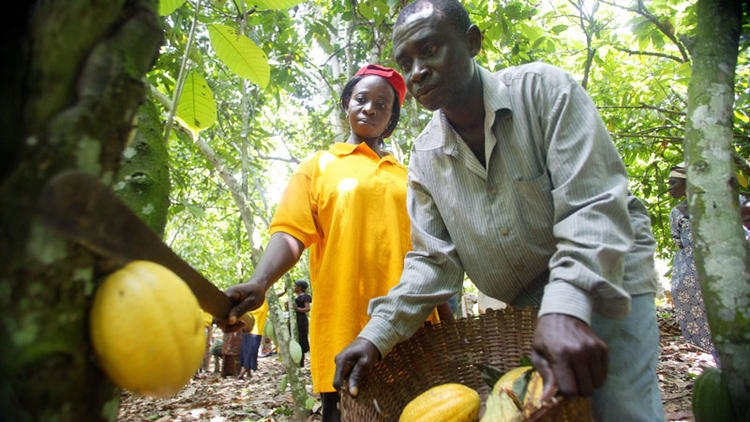
High quality global journalism requires investment. Please share this article with others using the link below, do not cut & paste the article. See our Ts&Cs and Copyright Policy for more detail. Email ftsales.support@ft.com to buy additional rights. http://www.ft.com/cms/s/0/b16f0fd0-fe38-11e4-8efb-00144feabdc0.html#ixzz3alSmr1qY
Cocoa hit a seven-month high backed by continuing worries about production in Ghana and the potential weather effects of El Niño later in the year.
The commodity, which is the main ingredient for chocolate, broke through key technical levels with the Liffe September cocoa reaching £2,092 a tonne, the highest level since September 30 last year.
More
On this topic
Ghana cocoa woes spark reliability fears
US fears over China clampdown on sorghum
El Niño blows back into commodity markets
Supply chains face heightened risks
IN Commodities
Oil market buoyed by product demand
Firm dollar halts energy and metals rally
Libya’s national oil company expects (or hopes) for a price pick-up
Saudi oil exports at highest in a decade
Sign up now
firstFT
FirstFT is our new essential daily email briefing of the best stories from across the web
The technical buying was backed by concerns about El Niño, the weather phenomenon that tends to bring dryness to west Africa, the main producing region for cocoa.
Brokers said uncertainty about supplies from Ghana — the main theme to come out of last week’s London Cocoa Week, one of the year’s biggest gatherings of the cocoa industry — also added to the rally.
“Prices have been buoyed by the continuing talk of origin issues in Ghana, and the fact that we’re at a point in the year where producing countries have been reluctant to sell as they wait for higher prices,” said Justin Grandison, head of cocoa brokerage at ABN Amro in London.
Ghana is the second-largest producer of cocoa, accounting for about 20 per cent of the world’s total output.
Although Ghana’s cocoa authority has not made any official statements on its 2014-15 production, traders and analysts expect the figure to be far below last year’s number of 900,000 tonnes and the country’s forecast of 850,000 tonnes.
Ecobank, the African banking group, expects Ghana to “struggle to reach 700,000 tonnes”, while Nabil Moukarzel, executive chairman of Finatrade, which operates a Ghanaian cocoa buying company, Akuafo Adamfo, estimated the number to be around 770,000 tonnes.
Mr Moukarzel said rainfall in Ghana and elsewhere in west Africa was trending well below the mean and that demand for cocoa globally looked likely to exceed supply.
“A fungus that kills cocoa pods means Ghana could face its smallest harvest in five years,” he added.
Spurred by concerns about the long term viability of cocoa farming, the cocoa and chocolate industries are stepping up education and support for small holder farmers.
Finatrade said its Akuafo Adamfo cocoa buying company was providing training for the 200,000 farmers it works with, giving them information on plant health and usage of fertilisers and pesticides.
Meanwhile Mondelēz International, the world’s largest chocolate company, announced on Tuesday that its $400m “Cocoa Life” programme was fully operational in Indonesia, the world’s third largest cocoa producer.
Working with agricultural traders Olam and Cargill, it said the programme will have trained 8,000 farmers by the end of this year.
Source: FT.com



